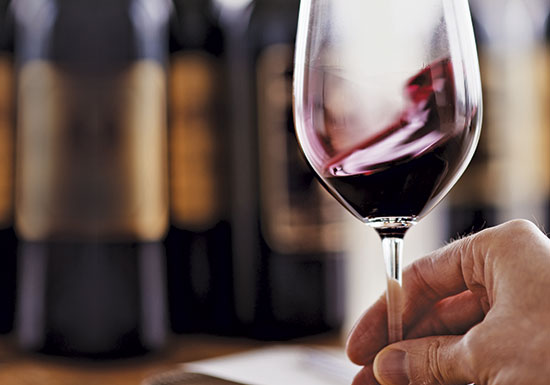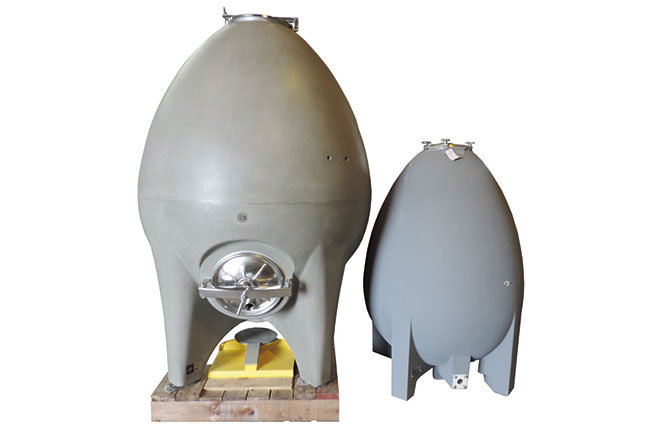Why are concrete eggs beginning to be used in place of more conventional fermentation tanks? Christelle Guibert provides an eggs-planation...
Concrete eggs in the winery – ask Decanter
Mason Wood-Pearce, Surrey, asks: I’ve noticed concrete eggs are becoming an emerging trend in wineries, what’s the point?
Christelle Guibert, Decanter tastings director, replies: Concrete tanks are commonly used in wineries, but egg-shaped vessels are fairly new. Michel Chapoutier designed the concrete egg with the help of Nomblot, a French company that has been making concrete vats since the 1920s. Only Loire sand, gravel, unchlorinated spring water and cement are used, with no chemical additives or iron added.
The vessels come in two sizes: 6hl and 16hl. The egg shape gives a continuous flow to the wine as it ferments and ages, which allows a more homogenous liquid. The thick walls provide good insulation and temperature is very stable during fermentation, which avoids the need for artificial refrigeration.
-
Learn more: Champagne – why size matters
In my spare time, I tend 1ha of Melon de Bourgogne in Muscadet, where I make Terre de Gneiss, fermented and aged in a concrete egg for 10 months. The effect of circulation inside the egg adds depth, volume and texture to the wine. I’ve compared it with the same grape from the same terroir fermented and aged in a stainless steel vat, and the difference is obvious: the egg wine has a better mouthfeel.
The downside is that the eggs aren’t cheap, and the 16hl version weighs more than two tonnes, so transport costs are also significant – but it does add some glamour to the winery!
-
Sulfites in wine: Friend or foe?
-
Read more notes and queries every month in Decanter magazine. Subscribe to the latest issue here
-
Got a question for Decanter’s experts? Email us: editor@decanter.com
Edited by Laura Seal for Decanter.com
More questions answered:

Determining a wine’s weight – ask Decanter
A wine's 'weight' is a tricky tasting term that can be hard to define and assess. Expert wine taster, Michael

How to tell if a wine is warm or cool climate – ask Decanter
Is is possible to tell whether a wine is warm or cool climate from a blind tasting? Terry Kandylis, Head

How to chill wine quickly – ask Decanter
What's the quickest way to cool a bottle of wine?

Are notes of vanilla a sign of American oak? – Ask Decanter
Is this true that vanilla notes in a wine are a sign it has been aged in American oak? Sarah







